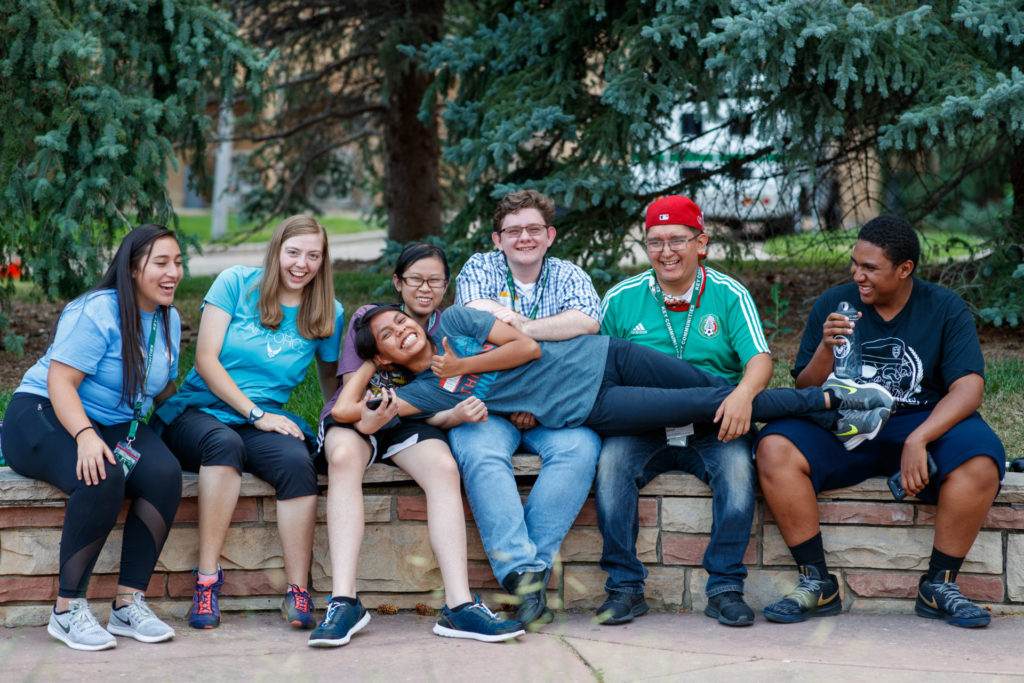
This fall CSU’s new Key Natural Sciences Learning Community welcomed a cohort of undergraduate pioneers ready to create a change they want to see in the world – more diversity in science and technology.
For the next year, 38 first-year students in the Key Natural Sciences Diversity Through Technology program – all majoring in the College of Natural Sciences, including 10 computer sciences majors – will live and work together to explore how computing impacts their community and the world.
Joining forces to support diversity
The Key Natural Sciences Community is a partnership between Key Communities and the College of Natural Sciences Learning Community (CNSLC). The new residential community, focused on Diversity Through Technology, occupies a dedicated floor in Laurel Village’s Piñon Hall. The students will live here together during their first year while examining the crucial role diversity plays in computing and technology.
The CNSLC supports students with majors in the College of Natural Sciences. Students participate in field trips and events specifically designed for science majors and can also explore topics of social justice and diversity in science and science education.
CSU’s eight Key Communities are highly diverse first- and second-year learning communities designed to improve participants’ retention, academic performance, community involvement, and diversity awareness.
More perspectives make us smarter
The Department of Computer Science recognizes the importance of diversity in solving complex problems. The new students have a big goal – expand the perspectives in science and technology – and they started early.
One week before the fall semester began, the students moved on campus and immersed themselves in a whirlwind of activities designed to help them build a support system by establishing relationships, understanding the CSU system and resources, and most importantly, learning how to navigate college academic life. Each student was also paired with a Key mentor.
“It made my transition to becoming a CSU Ram an unforgettable, enjoyable, valuable experience that ultimately better prepared me for college life.”
-Tay Monteau, freshman biology major
Freshman Tay Monteau is grateful for the opportunity and new relationships. “It made my transition to becoming a CSU Ram an unforgettable, enjoyable, valuable experience that ultimately better prepared me for college life,” she said. “Upon arriving, I immediately felt a sense of community among my fellow Key students, and now we are like a little family.”
This fall the students will investigate how computing impacts the world and dovetails with other CNS majors. For example, biology students can learn about bioinformatics, and psychology majors can learn about human-centered design.
Together, the group will also take computer science course CS150: Culture and Coding, the computer science freshman seminar, and participate in the spring Multicultural Undergraduate Research Art and Leadership Symposium (MURALS), where they will complete and present a research project related to technology.
Outside the classroom, they will have opportunities to teach K-12 students, participate in outreach activities through student organizations and mentoring groups, and interact with people from diverse backgrounds.
The community’s early start week experience was funded by the Green and Gold Foundation and supported by participation from computer science faculty, instructors, staff, 25 student volunteers, CSU Little Shop of Physics, Key Communities, CNSLC, CSU Astronomy Club, and the CSU Office of Transportation.
“For our first early-start week program, we have an incredible group of incoming freshmen with so much talent and personality,” said program coordinator Elisa Cundiff. “I can’t wait to see what they do next.”